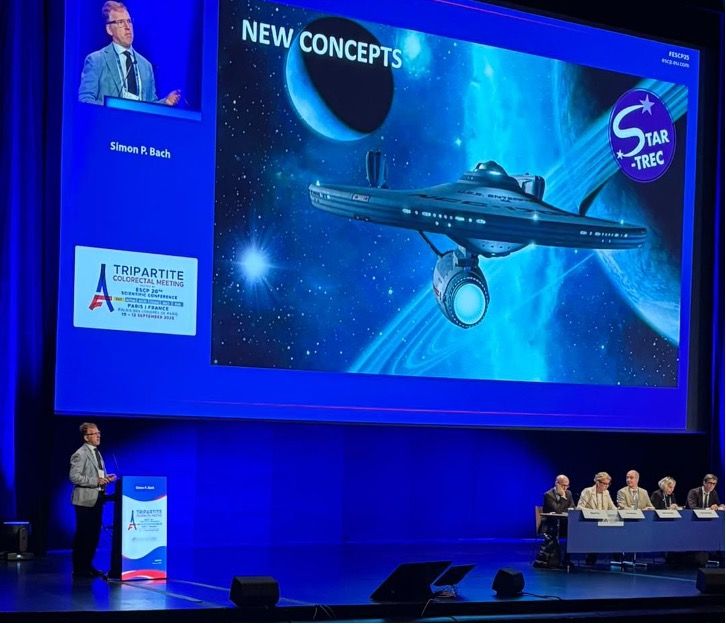At OncoDaily GI, we bring you the latest breakthroughs, clinical updates, and research highlights in GI oncology. This week’s roundup covers cutting-edge developments in colorectal, pancreatic, hepatocellular, gastric, biliary, and esophageal cancers. Key topics include early-onset colorectal cancer trends, liver decompensation prevention in HCC, neoadjuvant strategies in pancreatic cancer, organ-preservation approaches in esophageal/GEJ malignancies, HER2-low gastric cancer trials, first-in-class bispecific antibodies for biliary tract carcinoma, and innovative RAS-targeted therapies for metastatic PDAC.
Stay informed with insights from leading GI oncologists, investigator-initiated trials, and real-world clinical strategies shaping the future of precision gastrointestinal oncology.
Manon Allaire (MCU PH at AP-HP, Assistance Publique – Hôpitaux de Paris):
“New insights on preventing liver decompensation in HCC
We are pleased to share our recent work highlighting the crucial importance of preserving liver function in patients with HCC treated with systemic therapies.
In the era of immunotherapy, hepatic decompensation has emerged as a major cause of death in patients receiving atezolizumab–bevacizumab. Preventing decompensation is therefore key to improving outcomes.In our study of 474 patients with unresectable HCC receiving AtezoBev:
Non-selective beta-blockers (NSBBs) significantly reduced the 12-month incidence of hepatic decompensation before HCC progression.
These are, to our knowledge, the first data demonstrating a benefit of NSBBs in advanced HCC patients with CSPH treated with systemic therapy.
We advocate for systematic screening for CSPH in HCC patients to identify those who may benefit from NSBB therapy — as already recommended in cirrhosis — to help prevent liver decompensation and ultimately improve outcomes.
Dominique Thabut Jakob Nikolas Kather Asier Rabasco Meneghetti Sarah Mouri EASL | The Home of Hepatology Journal of Hepatology International Liver Cancer Association (ILCA) International Liver Cancer Movement.”
David Tougeron (Professor at Poitiers University Hospital, MD, PhD):
“Very happy to coordinate with my European colleagues the first academic trial in digestive oncology in Europe within the ENGIC group (European Network in GI Cancer).”
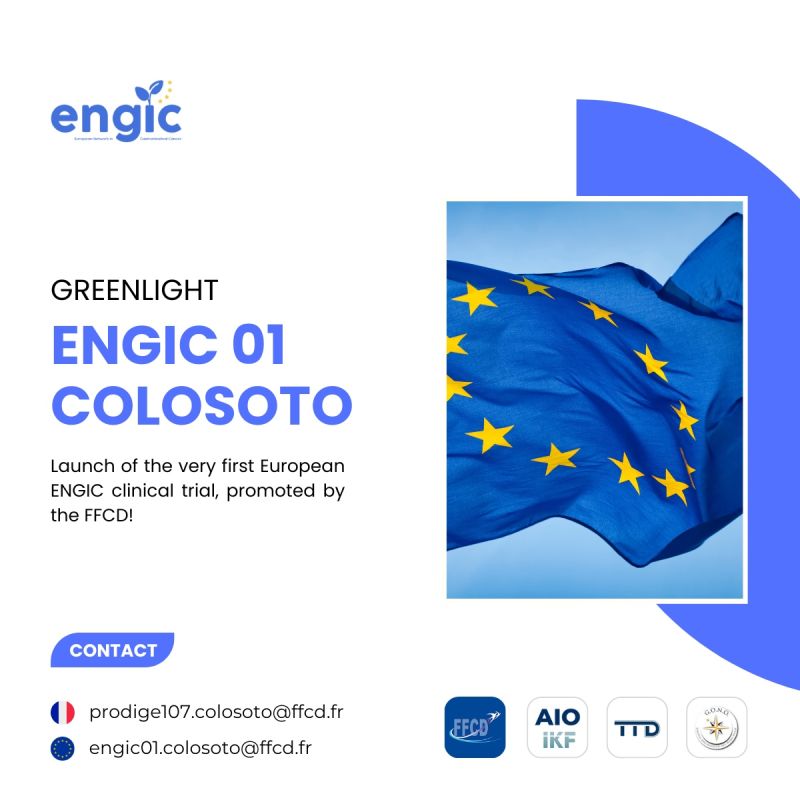
Colleen Sloan, PA-C, RDN (Earn 10.5 CE credits in The Obesity Medicine Nutrition Course | Created by a PA/RD with 11 industry experts)
“Colorectal cancer was once considered a disease of aging, but not anymore.
The statistics of early onset colorectal cancer are staggering !!!
By 2030, early-onset colorectal cancer (EOCRC) could account for up to 11% of colon cancers and 24% of rectal cancers.
Rates in 20- to 34-year-olds expected to surge by more than 90%!
I believe prevention starts in the pediatricians office discussing:
limiting fried foods
limiting added sugar
increasing fiber from fruits and vegetables
increasing nuts and seeds
consuming a variety of protein: tofu, poultry, fish, pork, dairy”
Read the full article in Contemporary Pediatrics
Giovanni Marchegiani (MD, PhD, Academic Pancreas Surgeon at the Hepato Pancreato Biliary (HPB) and Liver Transplant Surgery of the Padova University Hospital)
“It’s out!!! The PREOPANC-2 is in The Lancet Oncology
Neoadjuvant FOLFIRINOX vs Gemcitabine-based chemoradiotherapy in resectable / borderline resectable pancreatic cancer:
No difference in overall survival
Serious adverse events 40%
Both regimens may be considered.”
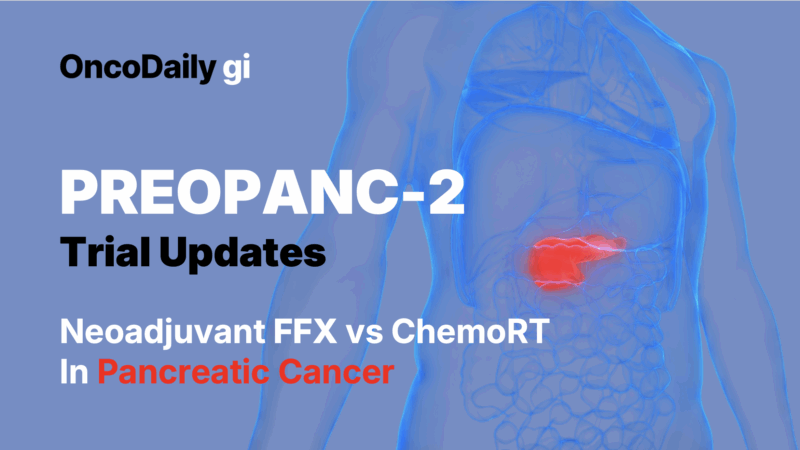
Find more information about PREOPANC-2 Phase 3 Trial in Resectable and Borderline Resectable Pancreatic Cancer on OncoDaily.
Anirban Maitra (Pancreatic cancer researcher, GI pathologist, husband, dad @Aiims1742):
“Revolution Medicines Daraxonrasib data in first-line metastatic pancreatic cancer — monotherapy and in combination with Gemcitabine + nab-paclitaxel. Even monotherapy shows impressive overall response rates (ORRs) and disease control rates (DCRs).
Do you need the chemotherapy? Grade 3 adverse events increase from 35% to 58%. The RASOLUTE-303 trial will provide the answer.”
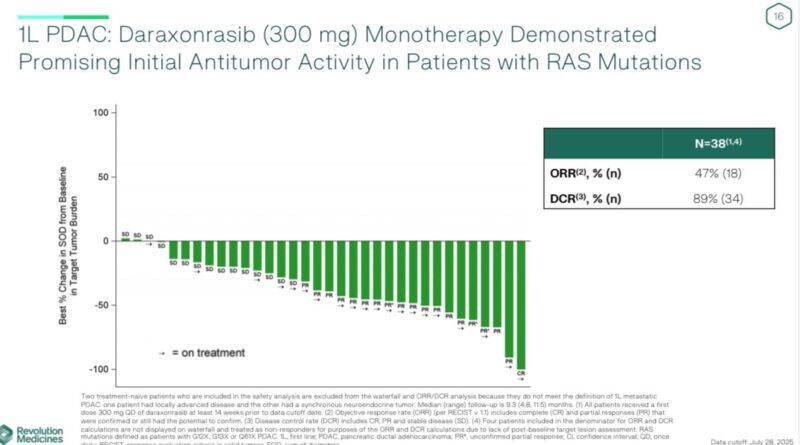
Angela Lamarca (Lead of NET HPB and NET Medical Oncologist at Fundación Jiménez Díaz University Hospital | Chair of ESMO Communication Committee | Lead of EORTC NET Working Group | Steering Committee Member: ENS-CCA, GETNE, TTD
“First webinar on ‘Ongoing Clinical Trials for Biliary Malignancies in Europe’ from CcaEns and PrecisionBTCnet is now available online.
Update of studies
discussion with top experts.
Great launch of this 6-monthly event.”
Watch the webinar on Youtube
Udhayvir Grewal (Resident Physician at Ochsner LSU Health Shreveport, GI Oncologist)
“Excited to share our new commentary in JCO_ASCO (my first one) ASCO.
In this patient-centered piece, we discuss the emerging case for organ preservation in select patients with locally advanced esophageal/GEJ cancer achieving a complete clinical response (cCR). Inspired by rectal cancer, trials like SANO show active surveillance can achieve noninferior survival compared with immediate surgery. Ongoing studies and biomarker-driven strategies highlight a future where watch-and-wait may become a real option.
We also outline the challenges — defining cCR, ensuring rigorous surveillance, and addressing the psychological burden of close monitoring. Integrating organ preservation into practice will require careful patient selection and multidisciplinary collaboration.”
Kohei Shitara (Medical Oncologist at National Cancer Center Hospital East, Japan)
“Protocol of an investigator-initiated trial (IIT) for T-DXd + first-line chemotherapy + nivolumab for HER2-low gastric/GEJ cancer is published at ESMO Gastrointestinal Oncology myESMO.
The enrollment is already completed, and the results will be reported in the near future.”
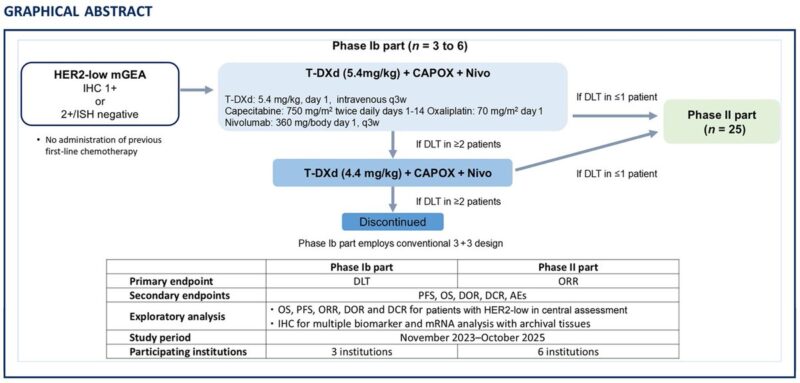
Dimitrios Moris, MD, MSc, PhD (reposting CA: A Cancer Journal for Clinicians)
“Hepatocellular carcinoma (HCC) is the 6th most common malignancy worldwide. Evolving treatments—including surgery, locoregional therapy, and immunotherapy—may offer curative options for advanced disease.
A flowchart titled ‘Proposed Duke Clinic treatment algorithm for the management of HCC’ details treatment options by stage, including early-stage, locally advanced, and systemic disease, with pathways for surgery, locoregional therapy, immunotherapy, and palliative care. Text labels include ‘Liver transplant,’ ‘Ablation,’ ‘TACE,’ and ‘First line therapy.”
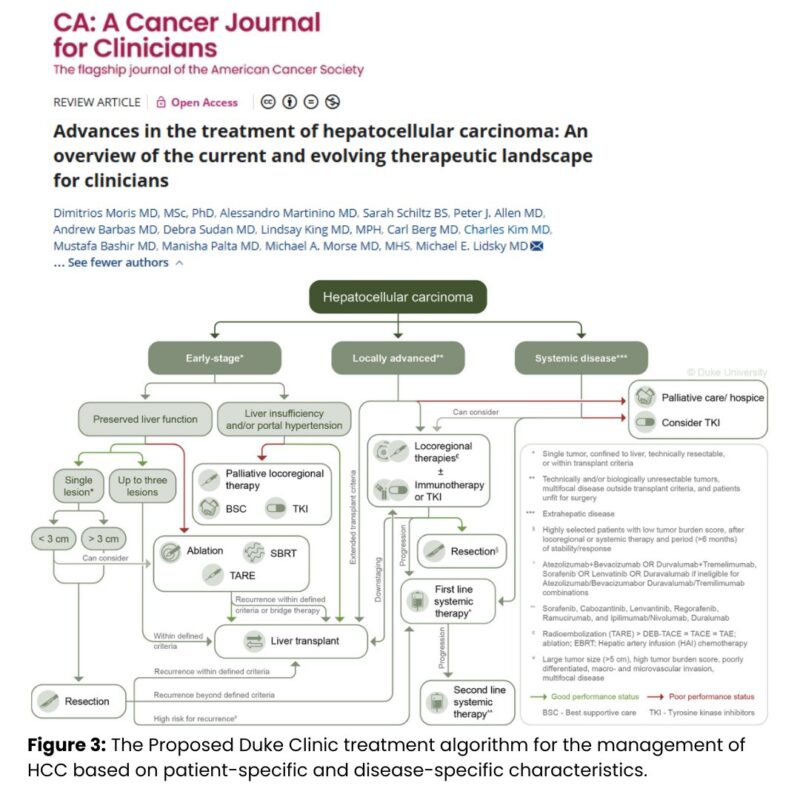
Simon Bach (Professor of Colorectal Surgery | Clinical Trialist | Director, RCS (Eng) Robotic and Digital Surgery Initiative):
“Tres bien @Tripartite Colorectal Meeting #ESCP25 in beautiful Paris incorporating ESCP – European Society of Coloproctology, The Association of Coloproctology of Great Britain and Ireland (ACPGBI), The American Society of Colon and Rectal Surgeons, Colorectal Surgical Society of Australia and New Zealand, Royal Australasian College of Surgeons, Royal Society of Medicine. So good to catch up with colleagues, particularly those from St Vincent’s Hospital Melbourne where I worked as a Colorectal Surgical Society of Australia and New Zealand fellow back in 2007-08 (seems like yesterday).
My personal highlight was presenting early outcomes from the Cancer Research UK (CRUK) #StarTrec study, a randomised trial evaluating non-operative management versus standard radical surgery for patients with early and intermediate stage rectal cancer in the UK, Netherlands, Denmark, Sweden and Belgium. Our motto is ‘kinder, safer, smarter’ patient treatment!
StarTrec implemented several key innovations that aim to deliver effective treatment without also causing unnecessary toxicities.
➡️ 1st study to compare two different organ preserving treatments versus standard radical surgery
➡️ 1st study to introduce ‘mesolectal only’ radiotherapy fields, 50% smaller than conventional radiotherapy fields and specially adapted for early and intermediate stage cancers
➡️ 1st study to implement non-operative management or ‘watch and wait’ at scale across 5 countries. Patients with no evidence of tumour following radiation treatment were closely observed, where previous studies routinely excised the tumour site.🔜 Results to be published very soon (unfortunately I am unable to share via social media until publication finalised). But worth the wait I promise!
I was overwhelmed by the number of positive comments afterwards. Many thanks to all of you who took the time to speak to me. Thank you to the organising committee for arranging such a spectacular venue which drew in a large global audience.
We are very grateful to all the patients who participated and the research teams who delivered this important and potentially practice-changing randomised clinical trial.”
